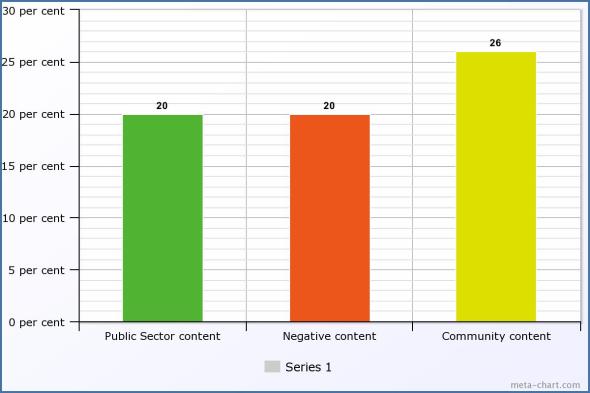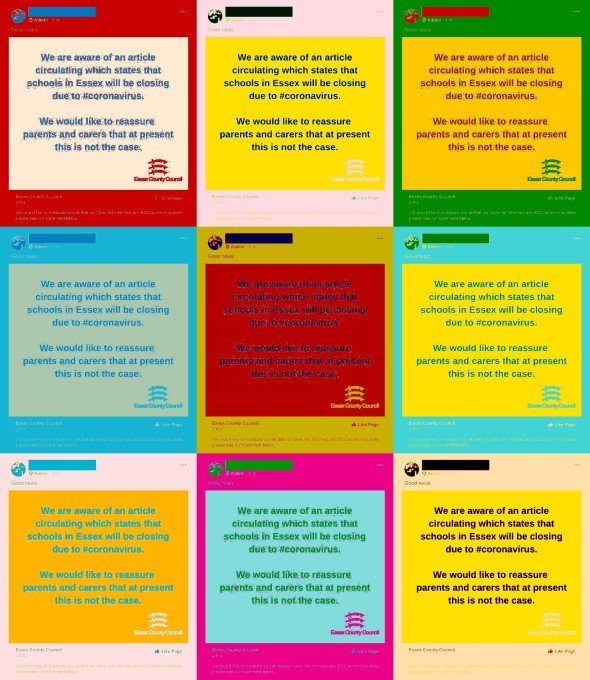
Hey everyone, remember when ‘going viral’ was something good? Different times.
The coronavirus pandemic of 2020 is not just a health war but an information war.
The war isn’t just being fought in the A&E departments but by public sector communications people tasked with flattening the upward graph of contagen so the NHS does not get overwhelmed.
We know that the public sector is using its own channels. Websites, Facebook pages, Twitter accounts and other platforms are being used.
But How has the discussion played out in community Facebook groups away from the corporate real estate of the web?
To find out, I looked at 15 Facebook groups from 10 communities in the Braintree district of Essex with a combined membership of more than 34,000. For each group I checked through the first 15 pieces of content served by the algorithm. I logged content that was negative, such as panic buying rumour. I logged community conversations, such as a offer of helping old people shop. I also looked for pro-active public sector content.
Coronaviris IS playing out in Facebook groups
From the research, almost half of groups had one piece of coronavirus content about the outbreak. As a topic, it is playing out in the community.
Fig 1. Facebook groups which have coronavirus as a discussion
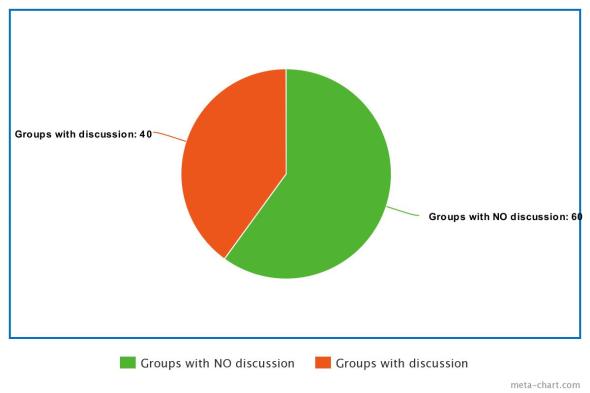
Yes, there is negative content
As the coronavirus pandemic has evolved, how the community has reacted has changed with it. Conversation in Facebook groups mirrors the conversations that are taking place offline, too.
So, conversations of panic buying are being played out. Stories of panic buying lead to more panic and the cycle becomes self-fulfilling.
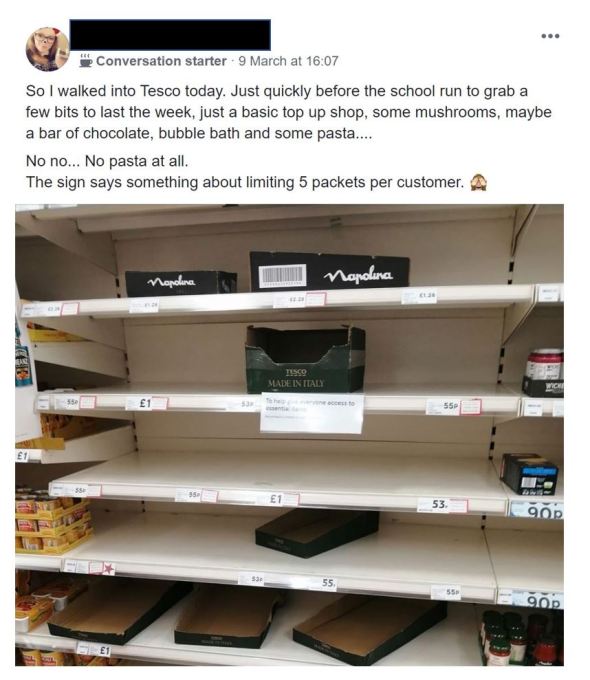
More worrying than high demand for pasta being taken off the shelves are tales of how you can self-diagnose by simply holding your breath. In incredible times the incredulous becomes common currency.
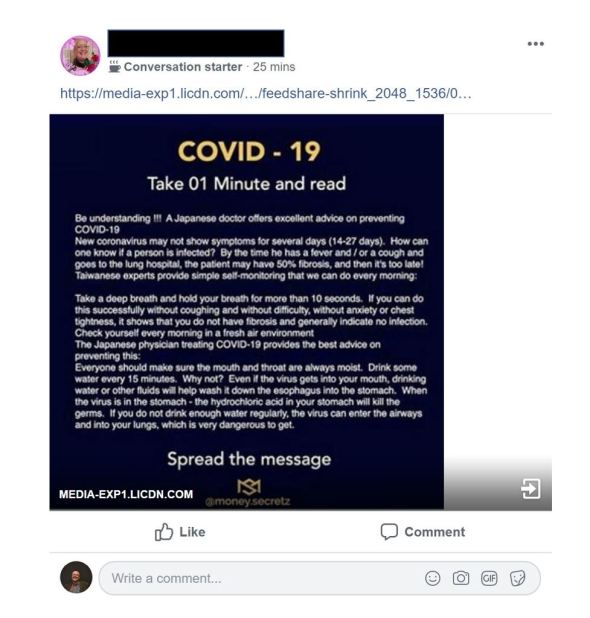
But yes, there is community discussion too
Not all the content is fear inducing.
The community has been coming together with offers of help to elderly people.
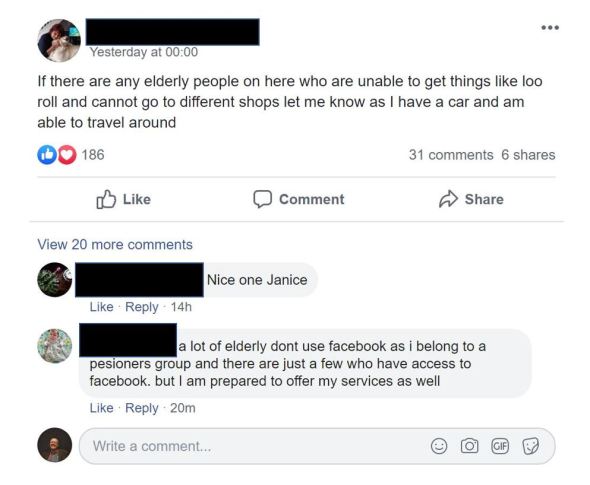
With all that in mind, what role is the public sector playing in the online discussion?
Yes, there is public sector content but links aren’t shared
This snapshot of 15 community groups in a corner of Essex I’ve mapped before is just a snapshot.
But one lesson is that content is shared in Facebook groups more than links. Not a single web link was found in the trawl.
A text message sent to a resident had been screenshotted and posted to two of the groups.
Elsewhere, Essex County Council had created some myth-busting which had been posted into the group by the group’s own admin.
What’s striking is that there was not a single link to a government, NHS or public health website.
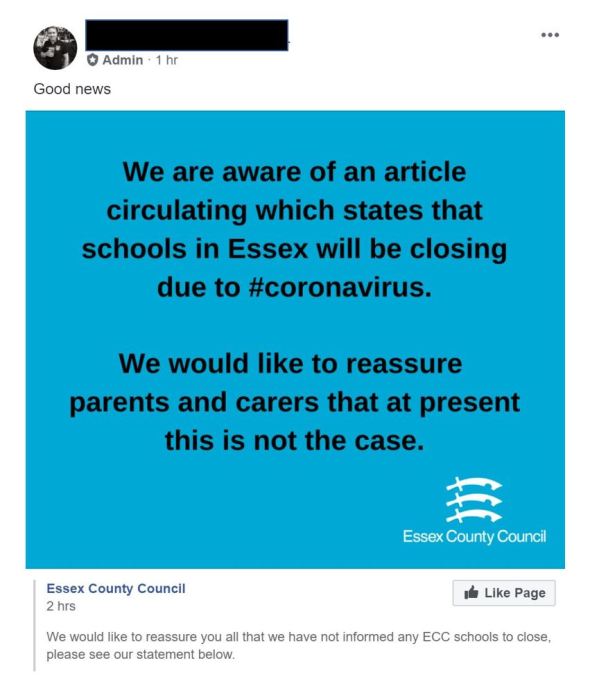
Bravo the council for creating the content and well done the admin for posting it.
For me, this is exactly the kind of approach needed to help spread reassurance to the community at a time of anxiety.
Fig 2. Facebook groups which feature content
Steps the public sector needs to take
It’s almost impossible to stay across the more than 1,000 groups and pages across Braintree, for example. Or your area.
But what public sector communicators can do is create content that’s shareable across platforms where people are. Why? Because this information is important and people are not always clicking through to organisational web pages.
Original source – The Dan Slee Blog » LOCAL SOCIAL: Is it time for a Local localgovcamp?

